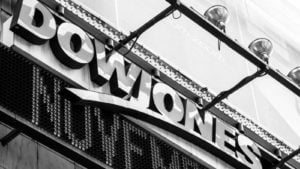Last week, there was relief on the trade front. The pesky caveat was that the U.S. and China had not officially signed a trade pact. Investors were reminded of that fact Monday as stocks drifted slightly lower. This followed reports from state-run media agencies in China that plenty of questions remain.
Sure, “official” hasn’t been reached on trade with China yet. However, U.S. officials appear comfortable saying that China is boosting its purchases of American agriculture products. Treasury Secretary Steve Mnuchin said he believes an official accord will be reached.
“Concluding the negotiations on Thursday and Friday, the two countries reached an agreement on the first phase of a trade deal,” said Morningstar in a note out Monday. “The agreement reportedly will delay the implementation of tariffs that were scheduled to begin this week and covers several different subjects that have been heavily contested, including intellectual property, access to the Chinese financial markets, and purchases of agricultural products.”
Volume was light in the U.S. today. Some markets closed in observance of the holiday formerly known as Columbus Day.
That got us to the Nasdaq Composite slipping by just 0.1% while the S&P 500 lost a meager 0.14%. The Dow Jones Industrial Average declined by 0.11%. Just 13 of its 30 components pointed higher with 30 minutes left in the trading day.
Boeing Controversies
Reports recently emerged that Boeing’s (NYSE:BA) board of directors took the chairman title away from CEO Dennis Muilenburg, indicating that the 737 MAX controversy could become his Waterloo. Controversy has been the name of the game with Boeing stock this year, but investors have given the shares and Muilenburg ample latitude.
A recent report by the Joint Authorities Technical Review (JATR) recommends changes for the 737 MAX jet. However, it doesn’t forecast when the plane will be ready for passenger service again.
“Wall Street is likely to focus on the JATR recommendations, which suggest more pilot training as well as updates to aircraft certification processes,” reports Al Root for Barron’s. “More pilot training could mean additional costs and delays returning the MAX to service. More simulator time for MAX pilots shouldn’t come as a surprise, though. That possibility has been discussed for weeks.”
Bottom line: Muilenburg is skating on thin ice. And if the 737 MAX isn’t ready to fly again soon, Boeing’s board could push for C-suite change.
Good News For Cyclicals
As noted above, fewer than half of the 30 Dow Jones stocks closed higher today. However, there was some good news for cyclical stocks. That’s relevant to investors because the industrial, technology, financial services and consumer discretionary sectors, each a cyclical group, combine for nearly two-thirds of the the Dow’s weight.
“President Trump gave in to a ‘mini-deal’ on trade (as China wanted), the Fed gave in to mini-QE (our term, not theirs) to mid-2020 (which global liquidity had required), and U.K. PM Johnson gave ground on Brexit (as the EU wanted),” said Stifel analyst Barry Banister in a note out today. “As investor risk posture and higher reserves weaken the dollar and lift longer yields, benefiting S&P Cyclical sectors.”
The gains were modest, but cyclical fare, such as Apple (NASDAQ:AAPL), Nike (NYSE:NKE) and 3M (NYSE:MMM) were among the Dow’s leaders today.
Speaking of Financials…
Third-quarter earnings season really kicks into high gear this week. A slew of financial services firms are stepping into the earnings confessional. Dow component JPMorgan Chase (NYSE:JPM), the largest U.S. bank by assets, takes it turn tomorrow before the open of U.S. markets.
Wall Street expects JPMorgan Chase to post third-quarter earnings of $2.45 a share on revenue of $28.5 billion. How well JPMorgan’s report is received will boil down to guidance on net interest margins.
Bottom Line: Some Good News in the Dow Jones Today
While there has been plenty of trade-related and geopolitical volatility, the major U.S. equity benchmarks have generated solid returns. Industry analysts expect that theme to continue over the next 12 months.
“Industry analysts in aggregate predict the S&P 500 will see an 13.0% increase in price over the next twelve months,” according to FactSet Research. “This percentage is based on the difference between the bottom-up target price and the closing price for the index as of October 10. The bottom-up target price is calculated by aggregating the median target price estimates (based on company-level estimates submitted by industry analysts) for all the companies in the index. On October 10, the bottom-up target price for the S&P 500 was 3321.32, which was 13.0% above the closing price of 2938.13.”
As of this writing, Todd Shriber does not own any of the aforementioned securities.
